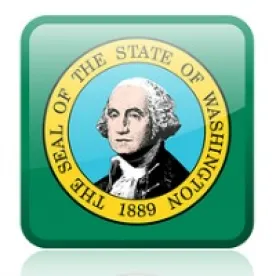The Washington State Department of Labor & Industries (L&I) released a draft administrative policy regarding tips, gratuities, and service charge requirements for employers. The new policy, titled “Tip, Gratuity, and Service Charge Examples,” consists primarily of examples to help answer employee questions and help employers comply with the Washington Minimum Wage Act’s requirements.
L&I previously issued a policy on March 6, 2019, concerning tips, gratuities, and service charges.
Following a brief primer on Washington law regarding tips and service charges, the new policy gives multiple examples (each containing a fact pattern, assessment of compliance, and explanation) for five specific topics: tips and wages, tip pooling, service charges, paydays, and deductions.
Tips and Wages
The examples regarding tips and wages focus primarily on employers that try to count tips toward an employee’s rate of pay for purposes of complying with minimum wage obligations.
Under Washington law, an employee must receive tips and gratuities in addition to the state minimum wage, an agreed wage rate, or a wage rate required by local ordinance, as applicable (small employers in the City of Seattle can count up to $2.19 per hour in tips toward the minimum compensation requirement, but they may not count tips toward the $16.50 minimum wage portion of that requirement). Tips and gratuities cannot be used to meet these requirements. One common practice targeted by the new guidance relates to training periods. Under the new guidance, employees receive tips during training periods.
Employers, managers, or supervisors may accept tips, but only for services they directly provide and not as part of a pool.
Tip Pooling
The tip pooling examples address who is and is not part of a tip pool. Temporary employees must be included in a tip pool if they are similarly situated employees serving customers in the same way as permanent employees. Managers, however, are ineligible to be members of a tip pool.
An employer may implement a mandatory tip-pooling policy so long as it complies with the requirement to pay all tips and gratuities to employees included in the tip pool.
Service Charges
The examples for service charges are like those regarding tips and wages. An employee must receive their portion of service charges in addition to the state minimum wage, their agreed wage, or a wage rate required by local ordinance, as applicable (service charges paid to an employee may count toward Seattle minimum wage and minimum compensation for the employee’s earnings above the state minimum wage). Service charges must also be paid even during a training period.
An employer can retain service charges so long as the percentage retained is clearly disclosed on the receipt and any menu provided to customers. It is a violation if the employer does not adequately disclose who receives a service charge and retains the service charge as income.
Payday
The payday examples demonstrate when an employee must be paid tips, gratuities, and service charges.
Under Washington law, tips, gratuities, and service charges must be paid to employees no later than wages earned in the same period are paid. Although it is not required to, an employer may pay tips out at the end of each night.
Deductions
Finally, the deductions examples address how to properly make deductions from tips.
To properly withhold taxes as required by the Internal Revenue Service, an employer adds the tips and gratuities received by an employee onto their paycheck, then reflects the same amount as a deduction to show the amount was previously paid.
An employer can deduct a prorated portion of a credit card processing fee from an employee’s tips, but the employer cannot deduct the entire transaction fee. An employer also may not deduct cash register shortages or other business expenses from tips, gratuities, or service charges earned by the employee.
Comments Requested
L&I is asking the public to provide feedback on the draft policy by May 26, 2023. Comments can be submitted directly online or by emailing ESRules@Lni.wa.gov. Virtual stakeholder feedback sessions will be held on April 5, 2023, from 1:00 p.m. to 2:00 p.m., and on May 15, 2023, from 10:30 a.m. to 12:00 p.m. Information on how to attend the virtual sessions can be found on L&I’s “Review Draft Administrative Policies” webpage.




 />i
/>i
